«Culinary Therapy»
Maria Kalenska about the culinary revolution, new gastronomic achievements of mankind during lockdowns and delicious travels in Ukraine and Great Britain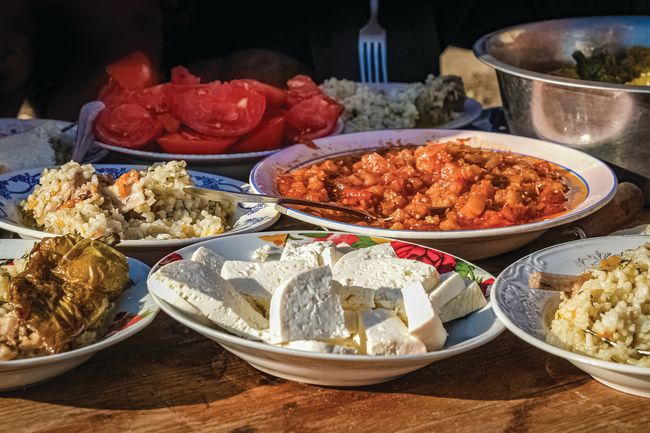
Maria Kalenska is a world-famous food blogger, gastronomic expert, founder of the first culinary school in Odessa, ambassador of Odessa cuisine in Great Britain, ambassador of the Way of Wine and Taste of Ukrainian Bessarabia. It is impossible to read her stories without something tasty at hand. Beautiful photos, stories full of the warmth of home, and concise recipes will take away your fear of taking even the most difficult dish. From the kaleidoscope of social networks, articles and routes laid by Maria Kalenska in Bessarabia, there is a beautiful gastronomic portrait of her native Odessa and the whole of Ukraine - we have something to be proud of and something to surprise the world. The other day we talked again with Maria about the culinary revolution, the gastronomic achievements of mankind during lockdowns and delicious travels in Ukraine and Great Britain.
AD: The whole world is living in difficult, dark times now. Pandemic, lockdowns, various restrictions. And here in your publications I came across an interesting and accurate word - "culinary therapy". Too many people have been forced to stay at home and make discoveries - eating is fun, the process of cooking at home can also be fun. You now live in the UK, but often visit Ukraine as well. How did the lockdown period affect the perception of culinary art in both countries?
MK: It is very interesting to watch how the attitude of society to cooking is changing. Even before I opened a culinary school in Odessa, I worked in the field of tableware and we had two concepts of sales - for the middle class and for the premium. The premium kitchenware department occupied only 10% of the total area of the store, the rest were items for table setting. When we wanted to increase this share of the kitchen, we always heard the answer - people who buy from us never go into the kitchen, their hands do not touch the food. It was 2009-2010. And in 10 years a total, world revolution took place. The trend of food did not just appear, but covered us with a wave. And now, in the same store, half of the retail space is already occupied by utensils for cooking. Cooking has become fashionable and prestigious. This is a huge cultural revolution.
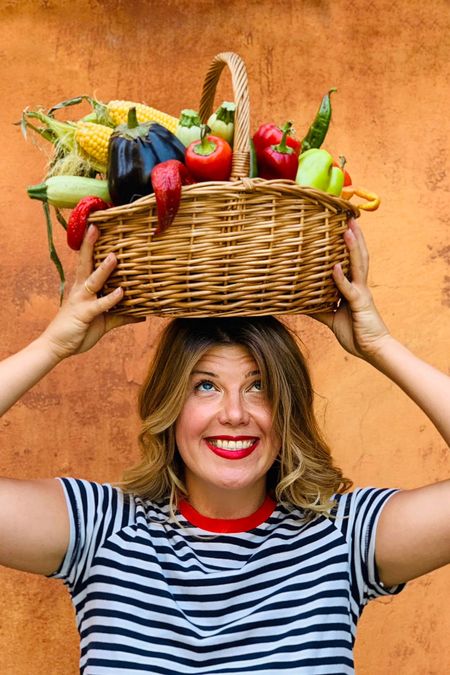
MARIA KALENSKA / PHOTO BY JULIA RUBINSKA
When we opened a culinary school in 2011, no one in Ukraine also understood why pay money to learn to cook? Why pay money for a recipe, for the competence of a chef? In English culinary schools at the end of the course you will prepare a small, tasting portion. We had to adapt our program to Ukrainian realities, so that in the end people get a full lunch of three dishes, otherwise they would not understand what they have to pay for. Today everything has changed. People who are interested in gastronomy understand very well what a quality recipe is, they are ready to pay for it.
AD: How has the last year changed the British perception of food, the attitude to cooking at home?
MK: After the Second World War, the world set itself the task of feeding the hungry, and at the same time humanity has become heavily involved in commercial food, and this is, in fact, available to everyone and in unlimited quantities, poison. Partly due to its own poverty, and due to the recent dominance of Soviet standards, Ukraine is not in such a critical situation as many countries in the Western world, especially Britain and the United States. Many in Britain will not be able to distinguish chicken from a product that resembles chicken, but it is not. People have forgotten what a genetically unaltered, artificially fed chicken looks like. The average Briton does not know when the strawberry season, because it is always in the supermarket. In this sense, I am happy for Ukraine, because we are closer to the earth and because of that we are physically and psychologically healthier. The Western world has long been "hooked" on ready-made food, which is enough to heat up - it's faster and cheaper. Lockdown allowed them to realize that we are what we eat, allowed us to feel how our body reacts to what we consume. America and Great Britain continue to feed their children what an Odessa mother never feeds her child in her life.
During the hard lockdowns, much tougher than in Central and Eastern Europe, and here people did not leave the house for six months, they had time and they began to do what they had never done before. Such people, who were still difficult to imagine in the kitchen, took up cooking and writing cookbooks. The first quarantine took place here under the humorous motto "Stages of social distancing: denial, anger, bargaining, depression, sourdough bread, acceptance." Everyone around started baking sourdough bread. We invited nutritionists to help people understand the interaction between the body and all the beneficial bacteria in the yeast that explain what fermentation is and why the whole world These products are necessary for our body, and when you cook this bread, it is not just useful, it gives joy, a huge release of endorphins. People think that it is very difficult to bake bread, and when you realize that it is simple - you rejoice, you immediately remember childhood, the aroma of rural, baked bread, children's breakfasts - bread with butter and cheese, it's so delicious! Color, smell, crunch, and then you put warm butter on fresh bread and there is nothing tastier now for humanity. It was very profitable for commercial structures to tear people away from bread, so bread is all we need, it is wholesome food. You can live eating only bread and water for a long time, the amount of trace elements and vitamins in it is extremely large, in addition, it is filling. If you eat bread, how do you sell everything else, everything you don't really need? I am very grateful to this lockdown for bringing bread back home. People began to eat consciously, to eat with pleasure, they began to recover lost knowledge.
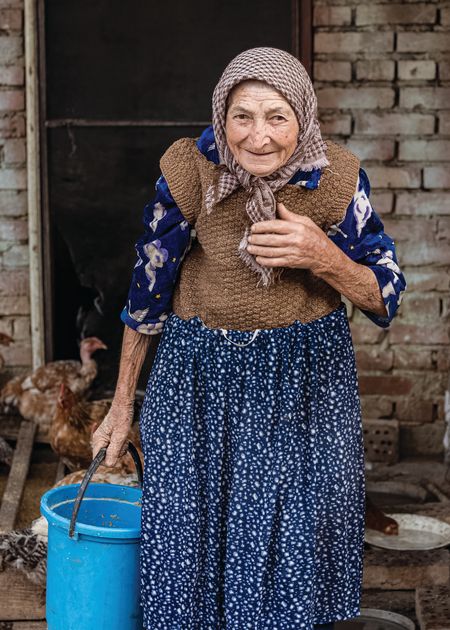
PHOTO BY ALEXANDER BARON
AD: You have already mentioned, we are lucky, Ukraine still has access to natural products, to some extent the seasonality of products is preserved. What other strengths may Ukrainian consumers and producers not notice?
MK: Ukraine is my love and my great pain at the same time. We are very slow to learn to love and respect ourselves. We have something to be proud of, but it is not enough, we need to build potential. I perceive a lot in Ukraine through the prism of my hometown - Odessa. Odessans have their own mentality, and it is directly related to the multinationality of this city. Now I also live in one of the most multinational cities in the world - London, but here these nationalities are not integrated. And Odessa was formed differently, we all mixed. Let's take any Odessa family, for example, ours, there are Greeks, Poles, Russians, Ukrainians, Germans. And so everyone. We are special and it is difficult to change.
I first realized what wonderful products we had when I moved to the UK. And then we, together with the experts of the project of registration of geographical indications, traveled through Bessarabia, looking for places for the first "Road of wine and taste". I remember a 58-year-old Frenchman, who did similar projects in 27 countries around the world, jumping over a Bessarabian garden with a bunch of mint and shouting "we can't buy such mint in France, but you just grow it in your garden!" and I realized we have a lot of unique things, and we take it for granted and don't care.
We have, for example, a catastrophic situation with Mikado tomatoes. Commercial Dutch pink tomato displaces our traditional variety of Mikado. The pink Dutch variety guarantees high yields, does not get sick, its thick skin facilitates transportation. Pink skin also makes it look like a mikado. Mikado is a very complex variety, its fruits of different sizes, thin skin, difficult to transport, but very tasty. This summer, I managed to find a real Mikado only at the bazaar in Bessarabia, with my grandfather, who is a hundred years old. I begged him to continue growing this variety, because if he stopped - there would not even be a place to try them. So far, we have many unique, organic products in Ukraine, unaltered seeds, and archaeobotany is already becoming popular in England. People are looking for unchanged seeds, grains and grow fruits from it, which are called heritage here and such products are 10 times more expensive than ordinary fruits and vegetables. This heritage potato in England is still delicious, it is similar to ours, and the one in the supermarket is artificial, no. At Lockdown, when Michelin-starred restaurants closed, farmers began selling real potatoes they grew for restaurants, and the British eventually tasted the delicious potatoes. In Ukraine, the situation is reversed, our own, natural, is 10 times cheaper than an artificial foreign tomato, but if we repeat this path of globalization, we will soon lose the taste of natural products.
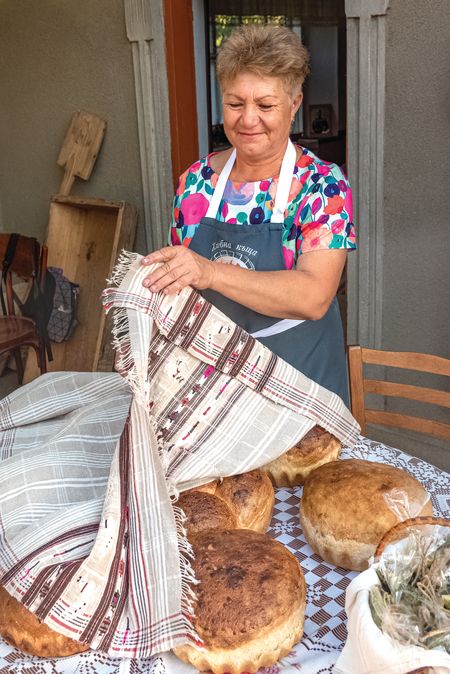
PHOTO BY ALEXANDER BARON
AD: How can we preserve and save the traditions of natural cultivation and consumption? Is there such a chance?
MK: Most likely, our path will be evolutionary, as in the rest of the world. People must first lose, realize what they have lost, and set about rebuilding. This, unfortunately, is natural. We only value when we lose. Although, there are good examples. For Ukrainians, the sacred theme is children. In the same way, the French and Italians have a sacred attitude to food, they preserve their unique culinary traditions. Ukrainians often need someone from abroad to say in a foreign language that they are good, that everything is fine - then it works instantly.
AD: You participated in the implementation of the EU project on registration of geographical indications. Can it help protect unique products, what is its purpose?
MK: There were several stages in the project, I participated in the construction of the gastronomic route. As for the indications themselves, I helped to find new names for products that, according to European law, can no longer have a previous name. For example, "champagne" or "cognac". The latter, from 2026, will seem to be called the "Ukrainian brand". The same goes for the name of feta cheese, which we will change to the traditional Ukrainian "stuffing". Of course, this is a difficult topic, manufacturers do not just change the names to which they are accustomed. That is why the project is built on the principle that we take away one name, but instead register other names of unique Ukrainian products. That's how we found Hutsul bryndza, Poltava honey, Kherson watermelon, Melitopol cherries also deserve special attention. The process of registration of geographical names in accordance with European legislation is complex and long, because it is a kind of guarantee of quality. Usually, it lasts 4-6 years, from the application by the association of producers to the establishment of production standards, paperwork. Even after registration of the product, independent laboratories annually inspect and confirm its certification.
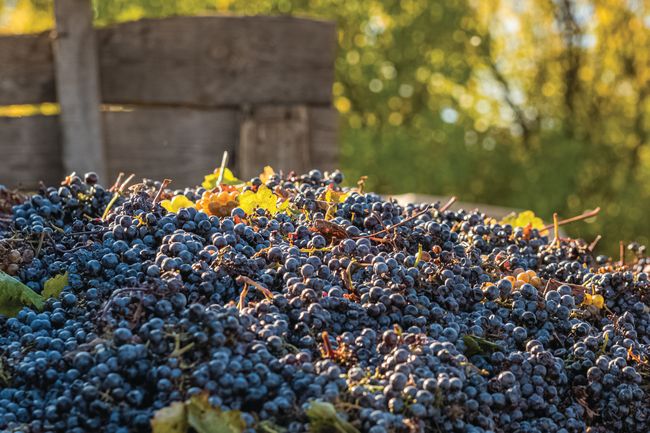
PHOTO BY ALEXANDER BARON
AD: It is important for Ukraine to tell the world about itself, to show our strengths, interesting tourist locations, gastronomic traditions. Are you currently working on a cookbook, how do you see its concept?
MK: The book will be published in English, its idea is very simple. I decided to collect recipes from various Odessa families, from relatives to people completely unknown to me. The main criterion is the "Odessaness" of this family, the more generations of the family lived in Odessa, the more likely it is that they will give our book a unique, authentic recipe. I want everyone to give this book a recipe for their special dish, the one that was prepared for every holiday, loved by everyone, attended by guests. I remember when I was little, my mother's friend Svetlana made a fantastic honey cake, and although there was always a lot of delicious things on the table, all the guests went to this honey cake. A special dish that you do not taste anywhere else and the hostess in its preparation - just brilliant. Here are the recipes I want to collect. I want to collect a hundred such stories, and this book will have an incredible synergy, it will be the book of our city. My task is to recreate these stories at a high level, so that our book took a worthy place on the shelves of the British Waterstones (a well-known chain of bookstores in the UK).
AD: You organize very interesting culinary routes that combine history, culture, gastronomic traditions, such as the "Road of Wine and Taste". How does the idea come about?
MK: I always wanted to do gastronomic trips, first of all, because all my travels are always gastronomic, it's interesting to me. Secondly, I have a talent - to find places and people who are pure in soul, who inspire, change your consciousness, show what life is like.
Recently I wanted to go to Scotland for three days and settle in a real castle. I found a special castle, on its territory there was a separate baker's house and a wood stove of the XIV century. Previously, people who lived near the castle did not have ovens and for centuries came to this house to bake bread from home-made dough. I met the owner of the castle, the heir of the famous military clan Munro. Scotland has its own system of aristocracy - clans, the head of the clan - the boss, and his successor - the Young. The clan does not always include people with the same surname or relatives, the clan can invite a stranger to become their member, say, for some special merit. The heir to the Munro clan now lives in this castle. He showed me a kitchen where no one had cooked for a hundred years. There are fantastic antique furniture, copper utensils, skewers for wild boars, a large wooden table with notches, which probably remember the chef who cooked a meat pie here 200 years ago. I look at this kitchen as a museum, and he says, "I want to liven things up, I want us to enjoy it all." In other castles, such kitchens are like museums, and this man wants to bring life back there, he wants the kitchen to smell like food. There are special people in our gastronomic tour of Bessarabia with my partner Alexander Baron. Recently we went on the road to Bolgrad, along the road there are a lot of signs "I will sell honey", we stopped and met just fantastic people. Or a man who has a strawberry farm. Now we are rebuilding it so that people can come and pick strawberries there themselves. Children really like it. If you grow strawberries properly, they will be clean and organic, and picking them will turn into great fun. Meetings with such people are very important to me. When it gets hard, you get tired, your hands go down, I remember these people, how they make their product, how they love it, how their eyes light up, and how proud and happy they are when someone tastes it. Usually, these are all simple, modest people. Unfortunately, none of them are rich, but that's not the point. For the sake of such people I want to go further, at some point they become the essence of these journeys.
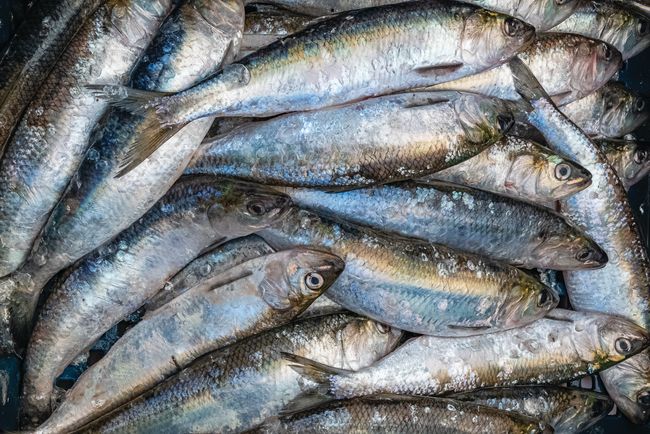
PHOTO BY ALEXANDER BARON
Odessa is never tasty if he eats himself. We need an interlocutor who can be told "God, how delicious you fried this fish", otherwise everything makes no sense. We are people who need to be shared - this is a very good feature of our mentality. We know how to receive guests, we make them happy. It is important for us to see ourselves through the eyes of others. Today, due to lockdown, travel is prohibited in the UK. But this does not mean that the British, especially those who have money, people of the world, will not get on a plane and not fly. Especially where everything is cheap, as for their money, and delicious. In addition, they feel good about the soul. This is our moment to be used, although, unfortunately, many inside Ukraine do not understand this.
I was also always interested in showing our route "Expensive wine and taste" to European guests. They can not only support local hosts, but also raise the profile of the region, help local people realize the importance of preserving gastronomic traditions. Bessarabia is a poor region, we often visit family farms, where everyone does their hard work to make this brand live. It is very important to explain to people that we have to support such productions, pay proper money for their work.
AD: Are there such tours in the UK?
MK: Yes, I also started doing gastronomic tours in England. In 2020 I was invited to organize a culinary school of Nika Bila Tserkva in England. She was one of the first to establish such culinary schools in Europe, inviting Michelin chefs, interesting cheesemakers and wine producers to her villa in Monaco. For this project in England, I was looking for winemakers, cheesemakers, noteworthy local farm shops. In the course of my schooling, I met many interesting people who are involved in food or wine in two counties, Gloucestershire and Hertfordshire.
By the way, one of these cheesemakers has a Ukrainian wife from Sumy. This man comes from an aristocratic Martell family. He grew up in a castle and devoted his entire life to preserving the Old Gloucestershire cow breed. When he started, there were only three such cows, and in order for people to continue to buy and breed cows of this breed, the man restored the recipe for Single Gloucester cheese. There is a famous British cheese Double Gloucester, protected by geographical indications, but this Double Gloucester is made all over the island, and Single Gloucester can be cooked in only one region and from the milk of only these cows. He also grows old varieties of pears, apples and plums, collected history and published a three-volume book about these ancient varieties. He also has a distillery of the XVI century and from these apples, plums and pears he makes brandy. All his activities are a non-profit project, and the business of life and we have something to learn from such people. So when we travel, we don't just eat or drink, we get charged with the right energy, mood, and ideas.
P.S. While the material was being prepared, Maria Kalenska told us another good news. For the first time in Ukraine, the Best Riedel Glass project for Odessa Black Variety will be launched. Its goal is to select the optimal Riedel * glass for local wine Odessa Black, as well as to determine the best sample of local wine Odessa Black. The project is part of Odessa Wine Week, which unites the efforts of the Ukrainian wine community aimed at developing the wine market of Ukraine, promoting and promoting the brand "Ukrainian wine", the integration of Ukraine into the world wine community.
* Riedel - a company with a 265-year history, a world leader in the production of crystal and glassware, created specifically for different varieties of grapes, because the shape of the glass greatly affects the taste of the wine in which it is served. Since its founding in North Bohemia and for 11 generations, Riedel Glass has been meaningfully creating masterpieces of glass art. The shape of each glass is developed taking into account the varietal characteristics of a particular grape variety and with the obligatory participation of a consilium of wine experts.
Author
Анна ДанильчукSection
Society





